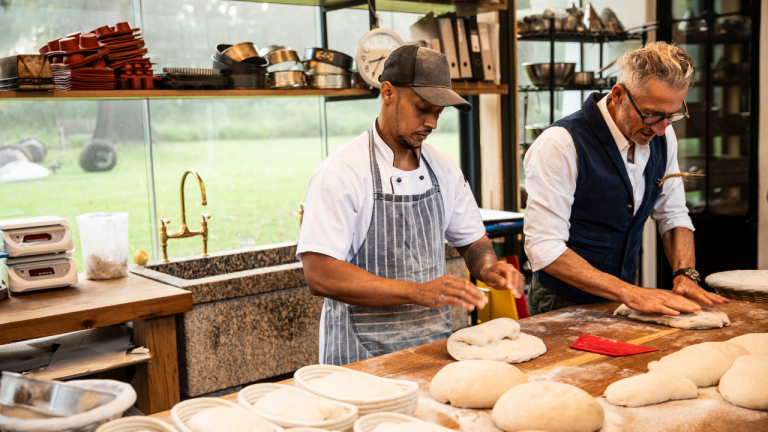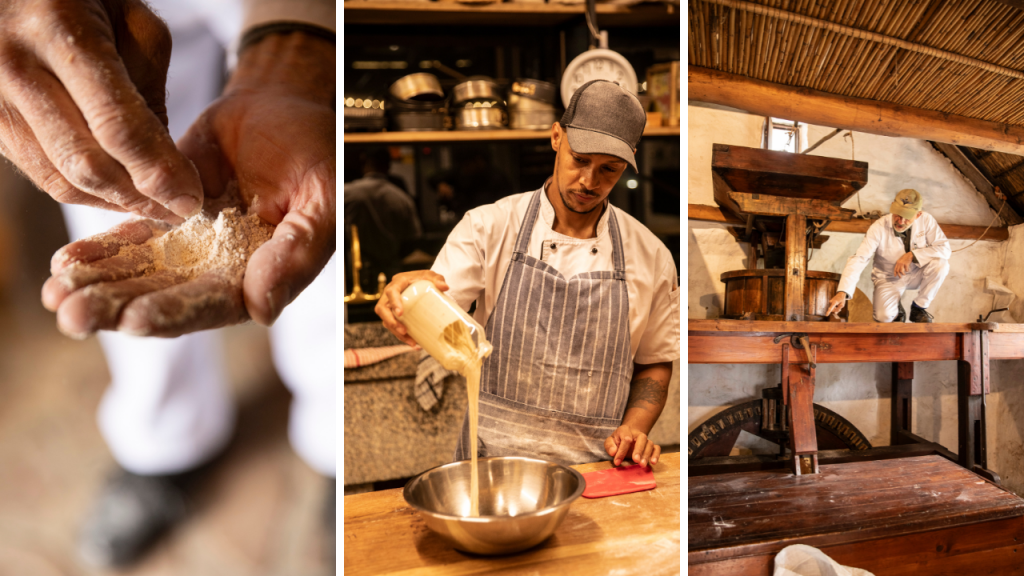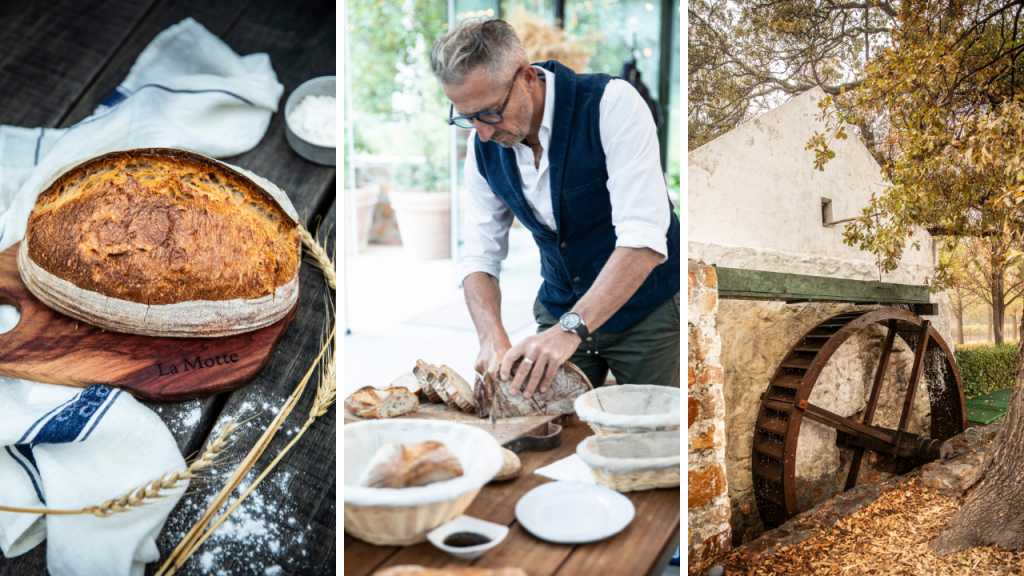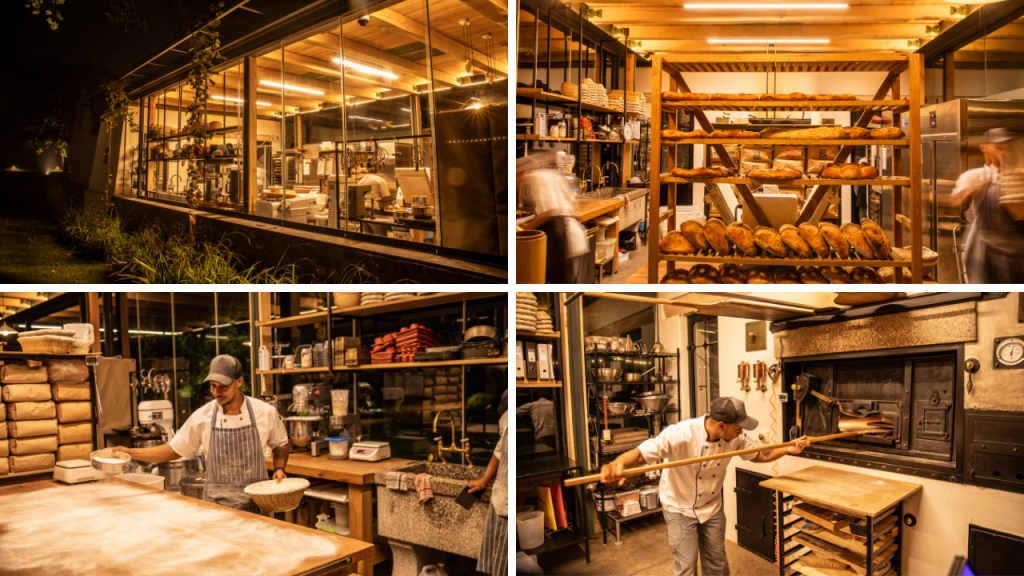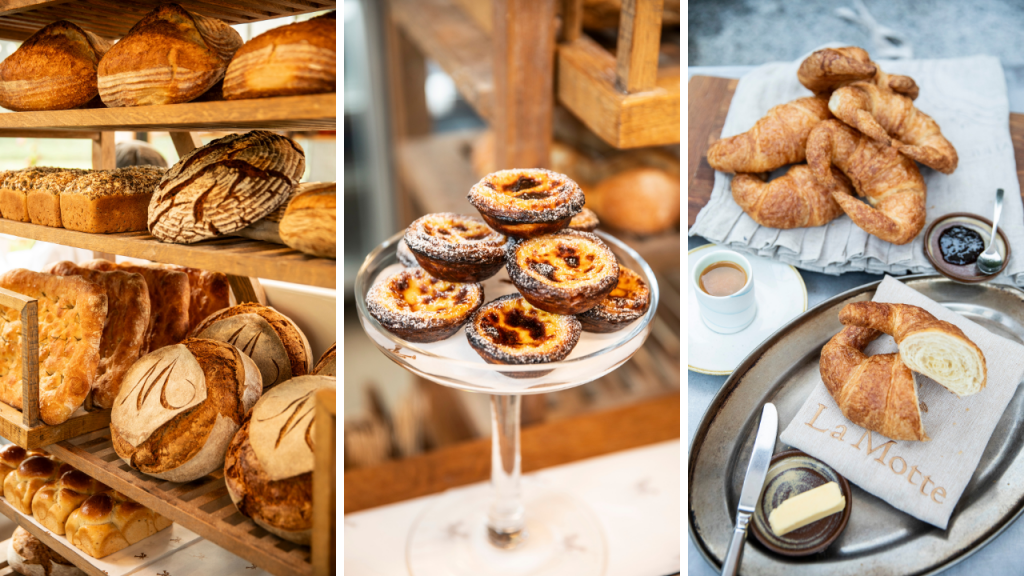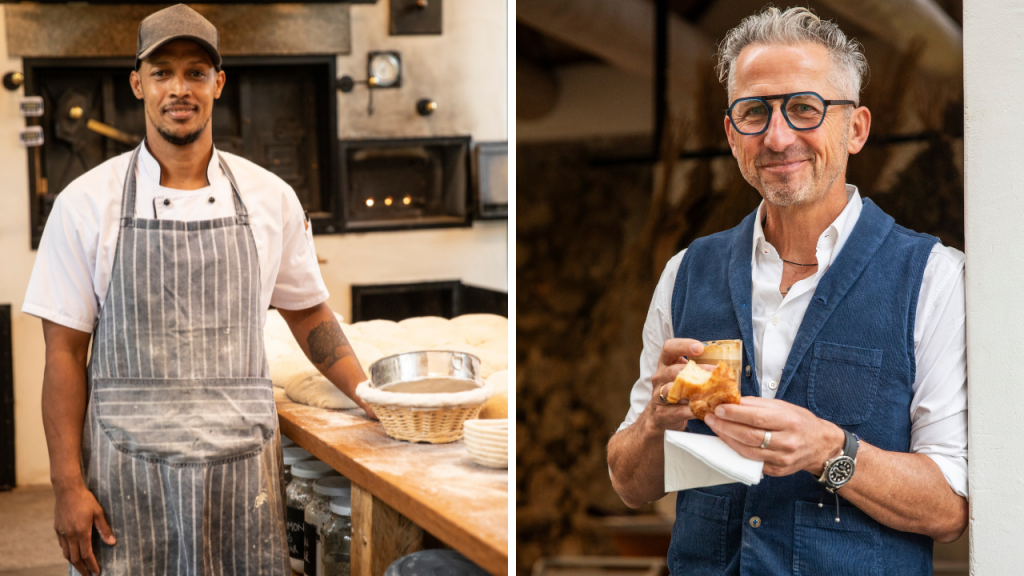The story of La Motte Wine Estate dates back to 1695 when Hans Hendrik Hattingh first acquired the land. By 1752, the estate began cultivating its legacy in viticulture with the planting of 4 000 vines. Fast forward to 1970, and La Motte underwent a significant transformation under the new ownership of Dr Anton Rupert. His restoration efforts elevated the vineyard to international prominence, establishing it as a must-visit destination for wine enthusiasts and tourists alike.
The Bakery at La Motte
La Motte invites guests to visit the La Motte Bakery and Garden Café, a space dedicated to celebrating
bread in its purest form. Housed in the historic Jonkershuis, built in 1752, the building has recently undergone renovations that blend its Cape Dutch heritage with modern design elements. The result is an open-plan glass and steel structure that offers a contemporary yet timeless experience.
Visitors can enjoy their freshly baked goods in the serene surroundings of the estate, whether seated inside the bakery or outside in the beautiful garden. The space is filled with ancient oak trees and expansive lawns. La Motte’s bakery aims to create a sense of home for each visitor, offering heartwarming dishes that pair perfectly with the estate’s historic werf.
The secret to La Motte’s special breads
At La Motte, bread-making is an art form. The bakery focuses on producing wholesome, natural breads reminiscent of the ones your granny used to bake. This commitment to quality is inspired by the estate’s focus on organic and sustainable farming practices. The bakery emphasises the sourdough method, thorough fermentation and flavour development, and use its wood- fired ovens to achieve the authentic flavours and textures that define their breads.
La Motte’s café offers a seasonal menu featuring a diverse range of breads including a Crustique, a precursor to the modern baguette; a fanciful Fougasse, a full-bodied Rye Loaf; the signature wholegrain ‘Motte’ Loaf; and a family recipe – Seed Loaf. Master Baker Markus Färbinger explains that the ‘Motte,’ named after the French word for ‘mound,’ is a wholegrain organic bread that captures the essence of traditional baking from 150 years ago. He also highlights the use of a sweet sourdough starter in their mosbolletjie bread, which allows for long fermentation, enhancing both flavour and nutritional value.
Bread-making at La Motte
The journey of making bread at La Motte is a meticulous process that begins long before sunrise. Head Baker Ricardo Slawers, who has been perfecting his craft at the bakery for nearly a decade, starts his day at midnight. The preparation is precise, with each step of the process – from selecting the best ingredients, slow mixing, applying the sourdough method, longer and cool fermentation, hand shaping and baking in a wood-fired oven – designed to ensure the highest quality.
After mixing, the dough is left to ferment for four hours at a temperature of 26 degrees. Once shaped, the dough rests for another two hours before being placed in the fridge for 24 hours prior to baking. This full-day preparation reflects the bakery’s dedication to serving only the best, whether it is the Classic Sourdough Loaf or a simpler Crustique.
Ricardo shares his passion for the craft, saying, ‘My hope is that when guests arrive at La Motte Bakery, they find a warm atmosphere where the memory of our quality bread lingers, making them eager to return.’
The wood-fired oven’s role
La Motte’s wood-fired oven is central to the bakery’s philosophy of traditional bread-making. Carefully selected to create a diverse range of breads, the oven is inspired by French designs from the time of the Industrial Revolution, where the fire is built separate from the baking chamber and allows for the introduction of steam during the baking process.
This method enhances the flavour and texture of the bread, producing a product that is both rich in taste and deeply connected to the history of baking.
Markus sees his role as a bridge between generations, passing down the knowledge and techniques of traditional bread-making. He believes that each loaf should resonate with both the baker and the customer, making the experience of eating La Motte’s bread one to remember.
Balancing tradition with modernity
At La Motte, the importance of grains, milling and the resulting flour is paramount. The bakery’s fermentation methods take between 20-36 hours to coax the intrinsic natural flavours and nutrition from the natural flour after which they are paired with equally thoughtful additions, from a simple spread of butter and honey to the various hot and cold sandwiches. Markus notes that in the past 50 to 70 years, changes in bread-making processes, particularly fermentation, have led to a loss of nutritional value. By restoring traditional methods, La Motte aims to influence and advance artisan bread-making and be a knowledgable voice in wholesome bread appreciation.
Looking ahead
All ingredients used at La Motte are locally sourced, reflecting the estate’s commitment to sustainability and growth. As they look to the future, La Motte has started to plant organic grains, restored a 100-year-old watermill to freshly mill organic grains for the full visual and gastronomic enjoyment of a a wider audience.’
ALSO SEE: Boerewors gatsby recipe by Ilse van der Merwe
Written by Katelin Maggott for Food&Home’s Spring 2024 Issue.
Photos: Gareth van Nelson.

